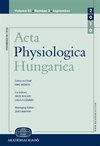ACE and ACTN3 genes polymorphisms among female Hungarian athletes in the aspect of sport disciplines.
引用次数: 9
Abstract
The aim of the study was to determine the importance of two sport-associated gene polymorphisms, alpha-actinin-3 R577X (ACTN3) and angiotensin-converting enzyme I/D (ACE), among Hungarian athletes in different sports. The examination was carried out only on women (n = 100). Sport-specific groups were formed in order to guarantee the most homogeneous clusters. Human genomic DNA was isolated from blood, and genotyping was performed by polymerase chain reaction. To measure the differences between the participating groups, Chi-squared test was performed using Statistica 9.0 for Windows® (significance level: p < 0.05). In comparing the ACE I/D allele frequencies, significant difference was detected between water polo (I = 61.11%; D = 38.89%) and combat sports (I = 35.71%, D = 64.29%) athletes (p < 0.03). There was no statistical difference when ACE I/D alleles in combat sports and kayaking/rowing (p > 0.05) were compared. A similarity was detectable in the I allele frequencies of the water polo (61.11%) and kayaking/rowing (56.67%) groups. The ACTN3 R/X polymorphism showed no differences in comparison with the sport groups. R allele frequencies were higher in every group compared to the X allele. The potential significance of the ACE I allele in sports of an aerobic nature was not clearly confirmed among Hungarian athletes.匈牙利女运动员ACE和ACTN3基因在运动学科方面的多态性
该研究的目的是确定两种运动相关基因多态性的重要性,α -肌动素-3 R577X (ACTN3)和血管紧张素转换酶I/D (ACE),在不同运动的匈牙利运动员中。这项研究只对100名女性进行。形成特定运动组是为了保证最均匀的集群。从血液中分离人类基因组DNA,采用聚合酶链反应进行基因分型。采用Statistica 9.0 for Windows®进行卡方检验(显著性水平:p < 0.05)。在ACE I/D等位基因频率的比较中,水球组(I = 61.11%;D = 38.89%)和格斗类(I = 35.71%, D = 64.29%)运动员(p < 0.03)。搏击运动与皮划艇运动中ACE I/D等位基因比较,差异无统计学意义(p < 0.05)。水球组(61.11%)和皮划艇/赛艇组(56.67%)的I等位基因频率相似。与运动组相比,ACTN3 R/X多态性没有差异。与X等位基因相比,R等位基因频率在各组中均较高。ACE I等位基因在有氧运动中的潜在意义尚未在匈牙利运动员中得到明确证实。
本文章由计算机程序翻译,如有差异,请以英文原文为准。
求助全文
约1分钟内获得全文
求助全文

 求助内容:
求助内容: 应助结果提醒方式:
应助结果提醒方式:


